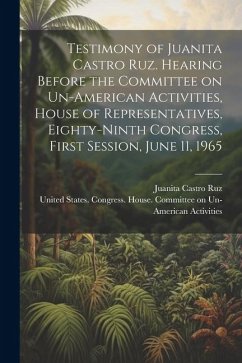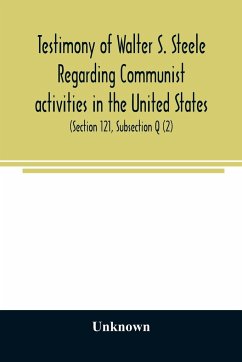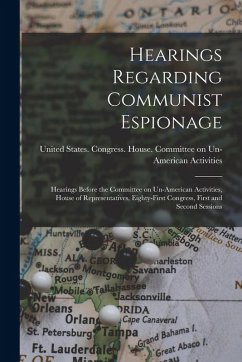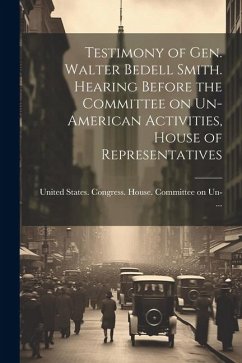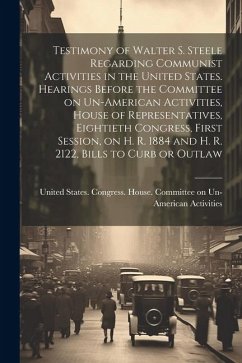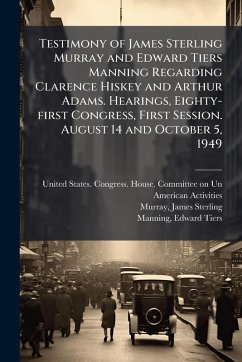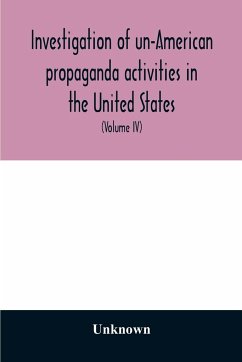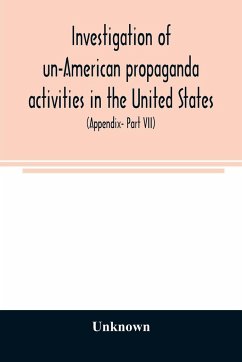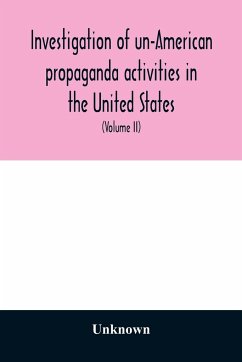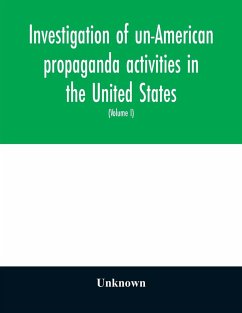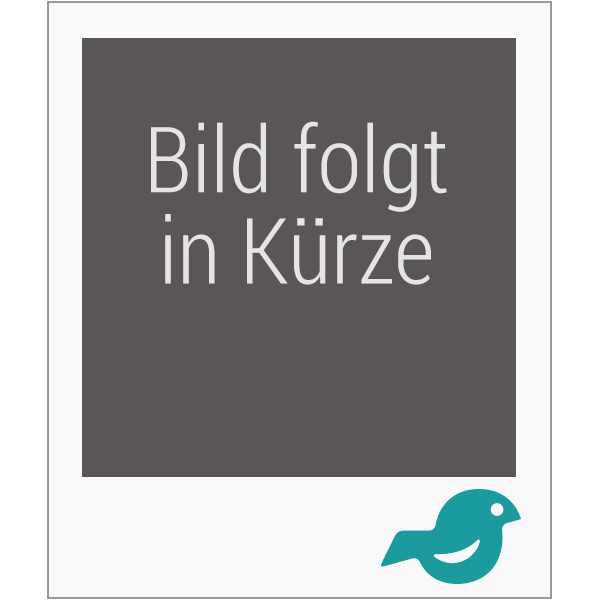
Communist Tactics Among Veterans' Groups (testimony of John T. Pace) Hearing Before the Committee on Un-American Activities, House of Representatives, Eighty-second Congress, First Session. July l3, 1951
Versandkostenfrei!
Versandfertig in über 4 Wochen
14,99 €
inkl. MwSt.
Weitere Ausgaben:

PAYBACK Punkte
7 °P sammeln!
This historical document presents the testimony of John T. Pace before the Committee on Un-American Activities of the House of Representatives on July 13, 1951. The hearing, conducted during the Eighty-second Congress, examines alleged communist tactics within veterans' groups. Pace's testimony provides a firsthand account of the political climate and concerns surrounding communist influence in American society during the early Cold War period. This transcript offers valuable insight into the workings of the House Un-American Activities Committee and the methods employed to investigate and exp...
This historical document presents the testimony of John T. Pace before the Committee on Un-American Activities of the House of Representatives on July 13, 1951. The hearing, conducted during the Eighty-second Congress, examines alleged communist tactics within veterans' groups. Pace's testimony provides a firsthand account of the political climate and concerns surrounding communist influence in American society during the early Cold War period. This transcript offers valuable insight into the workings of the House Un-American Activities Committee and the methods employed to investigate and expose perceived threats to national security. "Communist Tactics Among Veterans' Groups" serves as a primary source for understanding the anti-communist fervor that shaped American politics and culture in the mid-20th century. This work has been selected by scholars as being culturally important, and is part of the knowledge base of civilization as we know it. This work was reproduced from the original artifact, and remains as true to the original work as possible. Therefore, you will see the original copyright references, library stamps (as most of these works have been housed in our most important libraries around the world), and other notations in the work. This work is in the public domain in the United States of America, and possibly other nations. Within the United States, you may freely copy and distribute this work, as no entity (individual or corporate) has a copyright on the body of the work. As a reproduction of a historical artifact, this work may contain missing or blurred pages, poor pictures, errant marks, etc. Scholars believe, and we concur, that this work is important enough to be preserved, reproduced, and made generally available to the public. We appreciate your support of the preservation process, and thank you for being an important part of keeping this knowledge alive and relevant.



